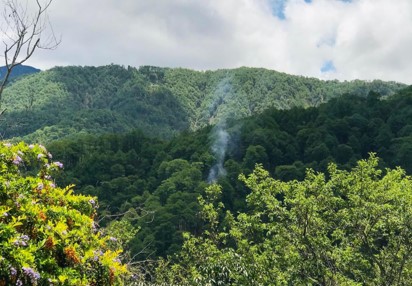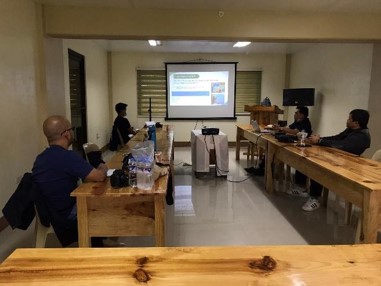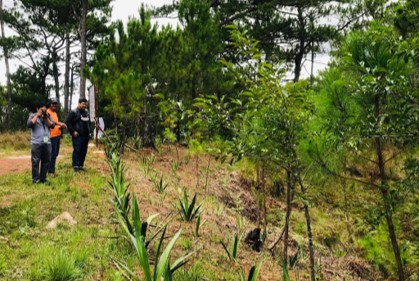
Climate change threatens forests all over the world. El Niño, as a result of climate change, exacerbates high risk of forest fire occurrences and its inevitable environmental consequences. Forest fires have endangered the Cordillera Administrative Region (CAR), the watershed cradle of northern Luzon.
The native pine forests in the region are fire-prone due to the frequent fires recorded in the past. Uncontrolled fires result in enormous flames for weeks due to the rough hilly terrain and lack of applicable equipment and skilled personnel. Thus, establishment, implementation, and management of effective forest firebreaks, such as greenbelts, are deemed necessary to preserve existing forest vegetation while protecting people and the environment.
The Benguet Pine Seed Production Areas (SPAs) are targets for forest fire protection since they serve as seed sources for the production of quality planting materials for reforestation and to support the National Greening Program (NGP) of the Department of Environment and Natural Resources (DENR). The SPAs can be protected through the establishment of Maguey (Agave cantala) as greenbelts.

The Philippine Council for Agriculture, Aquatic and Natural Resources Research and Development of the Department of Science and Technology (DOST-PCAARRD) currently funds a project that protects watersheds against forest fires though greenbelt establishment using Maguey. This project, “S&T Action Frontline for Emergencies and Hazards (SAFE) for Forest Fire in the Watershed in Bokod and Tublay, Benguet Province using Maguey as Greenbelt,” is being implemented by the DENR – Ecosystems Research and Development Bureau (DENR-ERDB) for three years.
In its second year of implementation, the Technology Transfer and Promotion Division (TTPD) of the DOST-PCAARRD recently conducted an annual review and site visits in Tublay and Bokod, Benguet Province, as part of the monitoring and evaluation activity to assess the project accomplishments vis-à-vis objectives and deliverables, discuss issues/concerns, and recommend possible actions/solutions for the project.
During the annual review, Project Leader, For. Rhandy S. Tubal presented the Year 1 accomplishments.

The project is on track with its workplan: It had established maguey nurseries producing 11,264 suckers/bulbils; Two Seed Production Areas had been protected from forest fires through planting of Maguey in 2.56-kilometer greenbelts in Bokod and Tublay, Benguet; Trained 14 local government officials and 58 farmers on climate change adaptation and greenbelt establishment; Information, education, and communication (IEC) materials such as manual, poster, and flyer on greenbelt establishment have been prepared for printing and copyright application.
The local government units of Bokod and Tublay showed their utmost support to the project. Thus, the project team hopes to provide livelihood to the barangay constituents in the succeeding years through maguey fiber craft production. Handicraft products made from maguey leaves can be used as packaging materials for their farm harvests.
